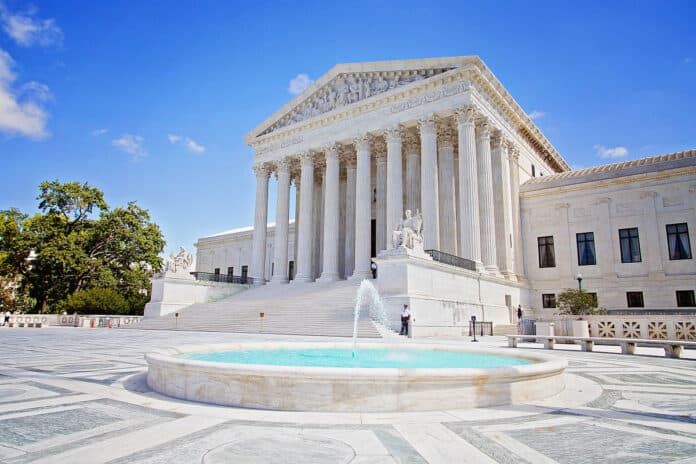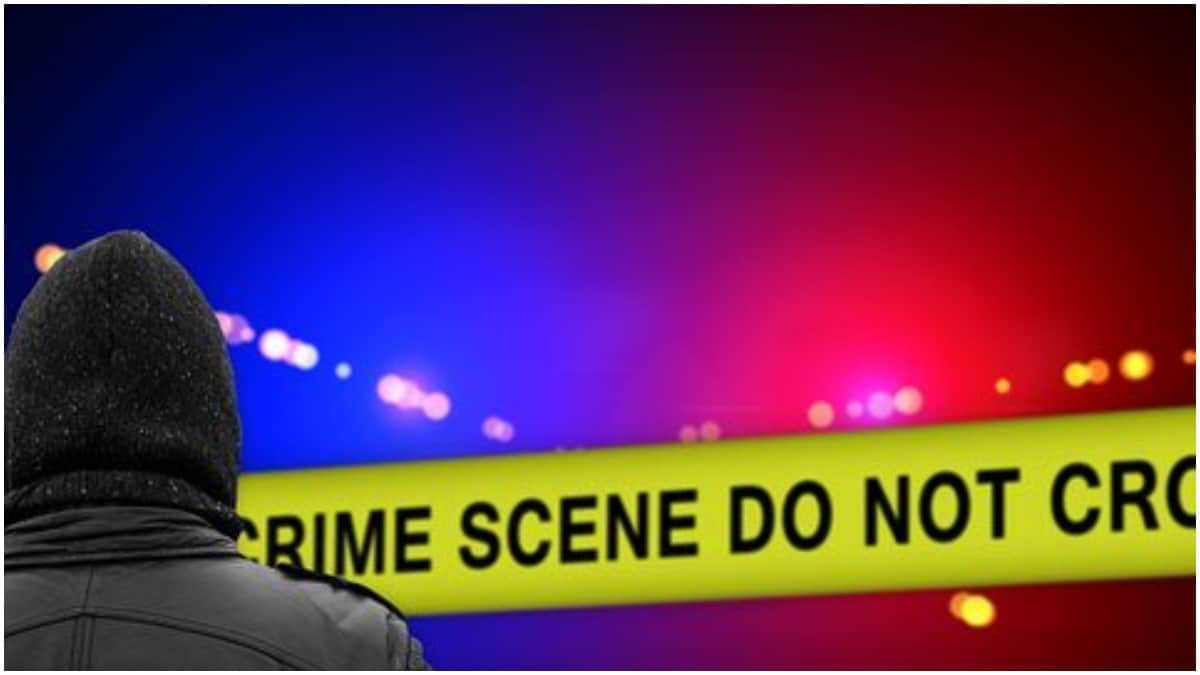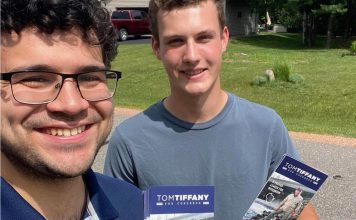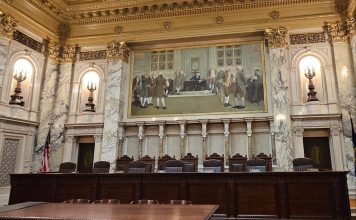The U.S. Supreme Court will hear arguments on Monday about whether the government can persuade social media companies to remove content from platforms.
The Biden administration appealed to the nation’s highest court after a ruling by the U.S. 5th Circuit Court of Appeals last September that stated Surgeon General Vivek Murthy, the White House, the FBI and the Centers for Disease Control and Prevention violated the First Amendment by influencing social media companies in moderating content on COVID-19 and the 2020 election.
More than 50 individuals and organizations filed legal briefs with the U.S. Supreme Court in Murthy v. Missouri. The case was originally known as Missouri v. Biden.
Last July, U.S. District Court Judge Terry Doughty ruled against the Biden administration and issued an injunction requested by Republican Missouri Attorney General Andrew Bailey to stop nine government agencies and their leaders and employees from specific actions and interactions with social media companies. The case was originally filed by then-Missouri Attorney General Eric Schmitt, now a U.S. Senator. Bailey, the former chief counsel for Republican Gov. Mike Parson, was appointed by Parson after Schmitt’s election in 2022.
The U.S. Supreme Court agreed to hear the government’s appeal on the question of whether the “government’s challenged conduct transformed private social-media companies’ content-moderation decisions into state action” and violated the First Amendment, according to the document granting the case.
In the government’s brief, it disagreed with arguments “government officials transformed private platforms into state actors subject to First Amendment constraints merely by speaking to the public on matters of public concern or seeking to influence or inform the platforms’ editorial decisions. The Court should reject that radical expansion of the state-action doctrine, which would ‘eviscerate certain private entities’ rights to exercise editorial control over speech and speakers on their properties or platforms.’”
Missouri’s brief highlights “103 pages of factual findings, supported by 591 footnotes” compiled in the district court’s ruling against the government.
“These unrebutted findings demonstrate ‘a broad pressure campaign designed to coerce social media companies into suppressing speakers, viewpoints, and content disfavored by the government,’” the brief states.
Eight of the briefs weren’t in support of either side, including one jointly filed from Netchoice, the Computer & Communications Industry Association, Chamber of Progress and the Cato Institute. It highlighted the concept of “jawboning,” defined by the Cato Institute as “when a government official threatens to use his or her power – be it the power to prosecute, regulate, or legislate – to compel someone to take actions that the state official cannot.”
“The Court should ensure that its decision does not permit the government to do indirectly what it cannot do directly – undermine digital services’ rights to curate and disseminate content,” the brief stated. “And the Court should clarify that there is no requirement of a predicate showing of state action for a jawboning claim against the government.”
The brief also asked the court to explain that any lawsuits from “jawboning” must be filed against the government and not the social media entity to be consistent with legal precedent.
Joe Mueller
Go to Source
Reposted with permission





![Brandon Basham, Chadrick Fulks: VICTIMS Alice Donovan, Samantha Burns [BIDEN COMMUTATION] brandon basham](https://www.wisconsinrightnow.com/wp-content/uploads/2024/12/brandon-basham-2-356x220.jpg)

![Aquilia Barnette: VICTIMS Robin Williams & Donald Lee Allen [BIDEN COMMUTATION] aquilia barnette](https://www.wisconsinrightnow.com/wp-content/uploads/2024/12/aquilia-barnette-2-356x220.jpg)
![Billie Jerome Allen, Norris Holder: VICTIM Richard Heflin, Security Guard [BIDEN COMMUTATION] billie jerome allen](https://www.wisconsinrightnow.com/wp-content/uploads/2024/12/billie-jerome-allen-3-356x220.jpg)
![Shannon Wayne Agofsky: VICTIMS Dan Short & Luther Plant [BIDEN COMMUTATION] shannon agofsky](https://www.wisconsinrightnow.com/wp-content/uploads/2024/12/shannon-agofsky-2-356x220.jpg)








![Josh Kaul’s Lawfare Betrays His Gubernatorial Ambitions [Up Against the Wall]](https://www.wisconsinrightnow.com/wp-content/uploads/2024/12/MixCollage-17-Dec-2024-11-01-AM-7291-356x220.jpg)












